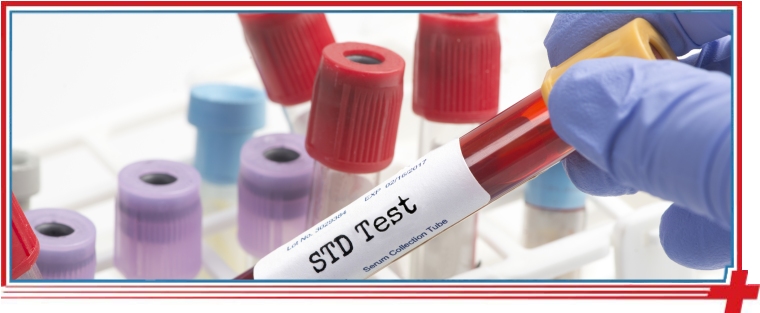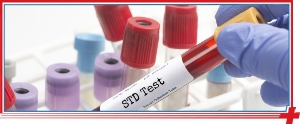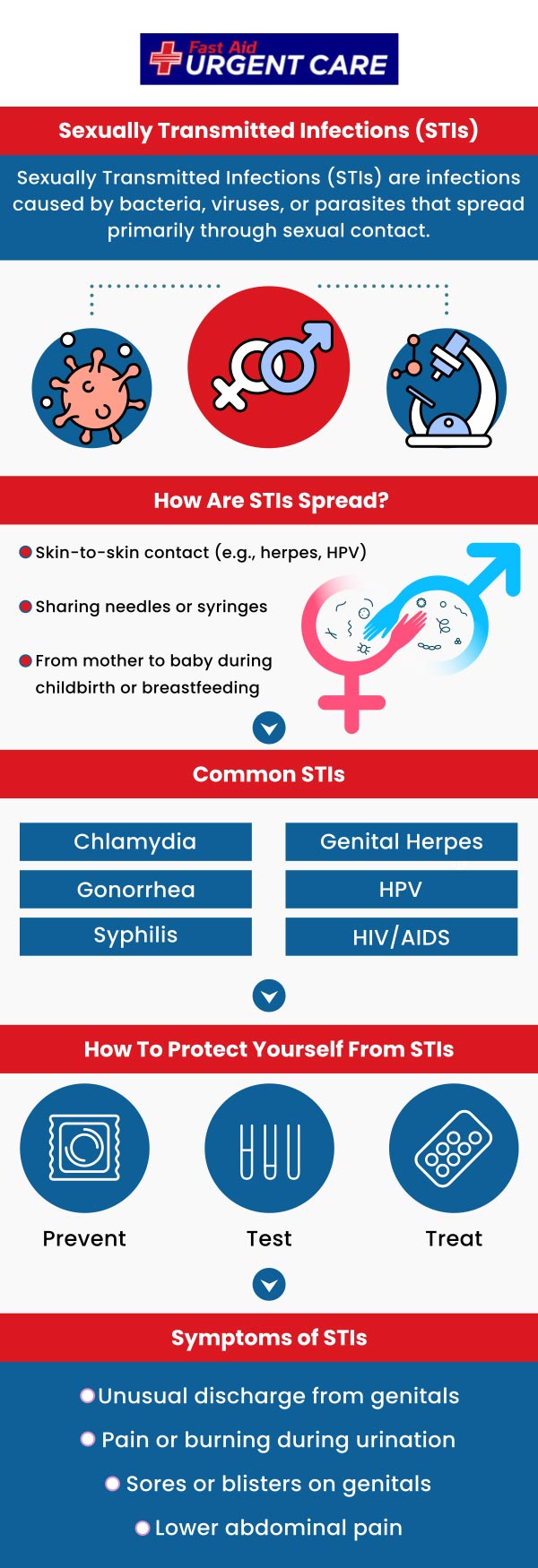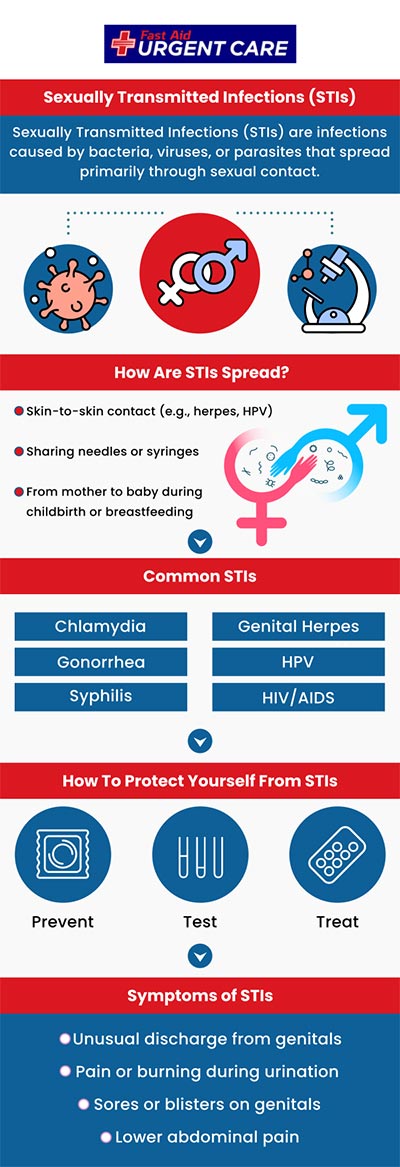Confidential STD Testing in Leon Springs, TX
Sexually transmitted diseases (STDs), also called sexually transmitted infections (STIs), are extremely common. Every year, millions of new infections happen in the United States. STDs can be transmitted through vaginal, oral, or anal intercourse. At Fast Aid Urgent Care Dr. Curtis Grote, MD, and his team provide confidential STD testing and treatment. For more information, contact us or schedule an appointment online. We are conveniently located in Leon Springs San Antonio, TX.




Table of Contents:
Do you offer STD testing?
Do I need to get my STD treated?
What are STDs? How do I get an STD?
How do I avoid getting STDs?
Which STD tests should I get if I don’t have symptoms?
Sexual health is a fundamental part of the human experience and is essential to our overall well-being. Having a good sex drive is healthy, and should be explored safely. There are inherent risks to sex, and the proper precautionary measures should be taken to ensure that all parties remain safe and healthy. If preventative measures are not taken, contracting a sexually transmitted disease is a real risk. STDs can be spread via skin-to-skin contact, by exchanging bodily fluids, or by coming into contact with an infected person’s blood. Bacterial infections, such as gonorrhea, chlamydia, and syphilis, can be treated with a course of antibiotics. However, viral infections, including herpes, HPV, and HIV, do not have a cure. Some viral STDs, like hepatitis B, cannot be cured but can be prevented with immunizations.
Yes, we do! At Fast Aid Urgent Care, we offer STD testing for several common sexually transmitted infections and can help you determine whether you are affected. All test results are completely confidential and will not be seen by anyone but you. Call us today to get in touch with one of our caring professionals to book your confidential STD test!
While not all STDs exhibit symptoms, they can have dangerous sequelae. A sequela is a medical condition that results from a previous disease and is otherwise known as a complication of an untreated disease. Certain STDs, if not treated, can cause pelvic inflammatory disease (PID) in women, which can lead to health problems like ectopic pregnancy or infertility.
In men, untreated STDs—even in asymptomatic cases—can cause a painful condition in the vas deferens, the tubes attached to the testicles. In rare cases, this can cause sterility, or the inability to have children.
All confirmed cases of STDs should be treated. In most cases, the treatment is straightforward and risk-free, which cannot be said for the complications of untreated STDs. It is in your best interest—and the best interest of your partner(s)—to receive treatment for any STDs.
STDs (sexually transmitted diseases) are very common, with over 2 million new cases reported every year in the US alone. They can be transmitted through oral, anal, and vaginal sex, and can even be spread without sexual relations, such as sharing needles. In some cases, people may not experience more than mild symptoms, and some do not show symptoms at all. Asymptomatic cases can make it difficult for a person to know that they have an STD without receiving a test.
The following methods are proven to reduce the risk of contracting STDs:
– Practice Abstinence — The only way to completely avoid contracting an STD is to not have sex, including vaginal, oral or anal sex.
– Use Condoms — The most popular form of STD prevention is using a condom, which when used correctly every time, can significantly reduce the risk of contraction. Certain STDs, like herpes, can be transmitted via skin-to-skin contact and are not always preventable with condom use alone.
– Have Fewer Partners — Limiting sexual partners also lowers the chance of contracting an STD, especially if the relationship is monogamous. Receiving a test to ensure both parties are STD-free is one of the most reliable ways to avoid STDs.
– Get Vaccinated — Many common STDs can be prevented by a vaccine, such as HPV (human papillomavirus). These vaccines are safe, effective, and can help avoid health problems.
– Get Tested — Many STDs do not exhibit symptoms, however they can still cause health problems. Getting tested for STDs is the only way to know for sure that you are not infected.
If you do not have symptoms but believe you have come into contact with an STD, or just want to ensure you are infection-free, there are STD screenings that test for the most common STDs. This may include a swab test, a urine test, and a blood test. For confidential and discreet STD testing, come to Fast Aid Urgent Care, where you can trust in the safety and accuracy of your results. For more information, contact us or schedule an appointment online. We serve patients from Leon Springs TX, Fair Oaks Ranch TX, Boerne TX, Shavano Park TX, Cross Mountain TX, and surrounding areas.

Additional Services You May Need
▸ Urgent Care
▸ Walk-in Family Care
▸ Children’s Health
▸ Sports Physicals
▸ DOT Physicals
▸ Pediatric Urgent Care
▸ Immunization

Additional Services You May Need
▸ Urgent Care
▸ Walk-in Family Care
▸ Children’s Health
▸ Sports Physicals
▸ DOT Physicals
▸ Pediatric Urgent Care
▸ Immunization





